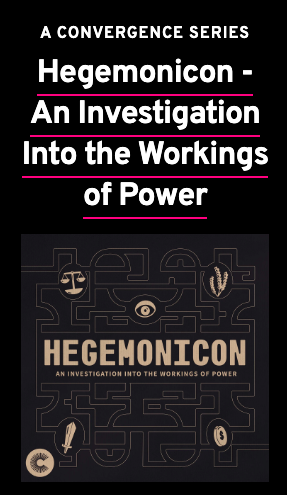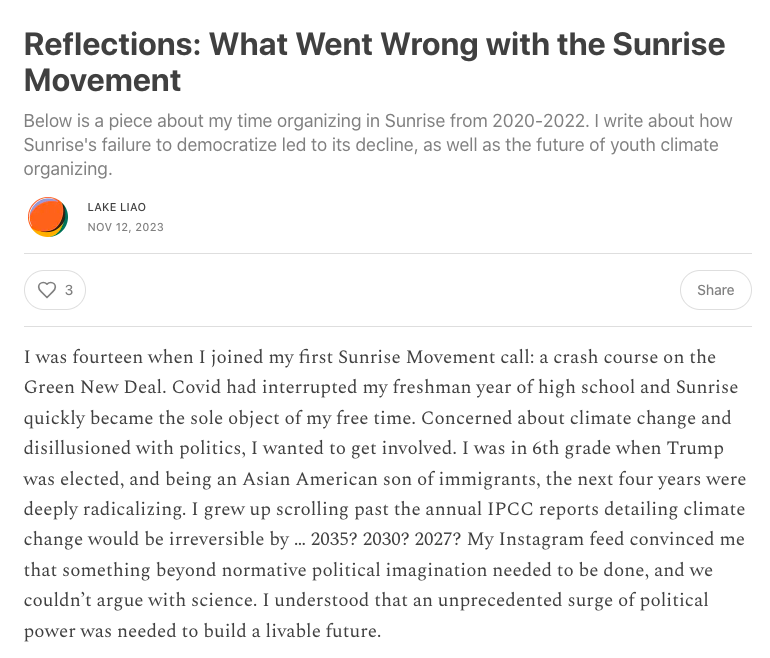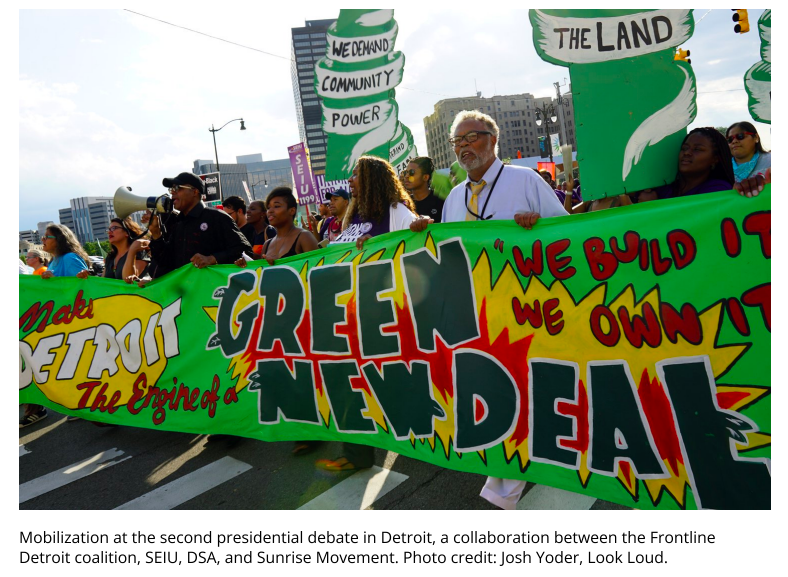Resources
Search below for resources covering the intersection of climate engagement, social science and data analytics.
RESULTS
Pathways to Power Workshop
How are you measuring your organization’s efforts and advances towards meaningful long-term change? Would you like to begin the process of identifying a unique set of metrics that best suit your organizational goals and power-building strategies?
Replenishing trust: Civil society’s guide to reversing the trust deficit
Trust-building is actions aligned to values — it’s not just communicating about what matters, but doing it. Trust for institutions across society is declining. This growing trust deficit is a serious problem: It erodes a high-functioning pluralistic democracy, compromises public health and makes it impossible to solve collective problems like climate change. Trust doesn’t just happen. American civil society institutions have an important role to play in increasing trust — which is necessary to create the kind of world we all want to live in.
Behind the scenes of Sunrise’s volunteer-led phone bank program
In the spring of 2020, Sunrise Movement had a goal of making 300,000 phonebank calls on six congressional primary races. Sunrise decided to create volunteer teams to manage other volunteers, liaise with campaigns, set goals, and develop strategy. The volunteer leaders of these teams took on a level of responsibility and autonomy typically reserved for staff. The team members took responsibility for setting goals, creating strategy and tactics, liaising with campaigns, and managing the work of thousands of other volunteers.
Social Movements, Political Instruments, and Governing Power, a panel hosted by Momentum
A broad current of the US Left has been practicing the “inside/outside” strategy—building powerful organizations and protest movements outside the halls of power, while also electing champions to work the inside game. This episode features a panel on the inside/outside strategy hosted by Momentum and moderated by Hegemonicon host William Lawrence. The panel asks: What have we learned about bridging the outside and the inside? How close are we to our goal of actual governing power? How important is it to deliver material wins to communities through political action while building “political instruments”? The four panelists each have built a somewhat different political instrument for their own contexts: Lizzy Oh of NYC-DSA; Kamau Chege of Washington Community Alliance; Asha Ransby-Sporn, Chicago organizer; and Evan Weber of Sunrise Movement and Our Hawai’i.
Reflections: What Went Wrong with the Sunrise Movement
The Sunrise Movement has had successes but also experienced internal difficulties. This article, a personal reflection on Sunrise experience, argues that the energy and mobilization of the 2018-2020 years that led to a surge of youth joining the Sunrise Movement won’t be possible in the next four years unless a new organizational strategy is built in the youth climate left. This author organized with a local Sunrise “hub” and then joined national leadership teams. However, Sunrise internal politics were based on who you knew.
How climate activists won the American Climate Corps
Last month, President Joe Biden announced the launch of the American Climate Corps, or ACC — a program that will train some 20,000 young people in careers in climate and clean energy. In this resource, Sunrise Movement co-founder Evan Weber discusses the years of Green New Deal organizing that led to the landmark new jobs program to address the climate crisis. A broad paint brush of tactics contributed to the win that is the American Climate Corps. These tactics included 500 young people getting arrested for blocking the White House in the summer of 2021 while demanding a fully-funded civilian climate corps in the Build Back Better negotiations. They also included behind-the-scenes lobbying and policy negotiation, coalition building and the electoral work that delivered some of the highest youth voter turnout in modern history — with climate being the reason that happened. The latter is also the reason President Biden went more aggressive on climate and updated his climate policy.
Blueprint for a Multiracial, Cross-Class Climate Movement: The Workbook for Coalitions
This workbook is meant to help you translate the analysis and recommendations we provide there into workable features of your organizing. Whether you’re currently involved in a multiracial, cross-class climate coalition, thinking about starting one, or evaluating a past coalition on reflection, we hope this workbook clarifies for you and your coalition partners the breadth of considerations and decisions you should be prepared for.
Blueprint for a Multiracial, Cross-Class Climate Movement: The Report on Coalitions
Multiracial, cross-class (MRXC) coalition-building is essential if the climate movement is serious about tackling the climate crisis at the scale it demands. However, a historical lack of collaboration, trust, or healthy mechanisms to deal with conflict often impair those efforts. This Blueprint report and accompanying workbook provide an analysis of the difficulties MRXC climate coalitions are likely to face and offer recommendations for a proposed path forward.
The emerging picture of the most-often cited challenges grassroots groups are facing currently includes: 1) Help with building intersectional narratives and coalitions to link struggles together; 2) Activist safety & security in repressive environments; 3) Maintaining activist engagement and working together efficiently in groups; 4) How to secure funding for grassroots organizing and how to report impact; 5) How to build effective strategy within non-hierarchical structures; 6) Managing burnout among activist communities & collective care. The Global Grassroots Support Network is a collection of 84 seasoned grassroots organizers, campaigners, coaches and more. The Network supports struggles for climate justice, reproductive justice, LGBTQIAS+ rights, housing justice and workers’ rights. These members currently come from: Australia, Canada, Denmark, France, Germany, Ireland, Kenya, the Netherlands, New Zealand, Nigeria, Spain, Tanzania, Turkey, Uganda, the U.S., UK and Zimbabwe. If you’re excited by the mission of supporting grassroots justice-oriented activists, the Network has lots of room for new members and you can commit the amount of time that is accessible to you, and the input that supports your mission.
The Kernel: A Tool for Developing Good Strategy (and Avoiding Bad Strategy)
The Sunrise Movement successfully relied on the “strategy kernel for campaigning.” The kernel involves three elements: a diagnosis that defines or explains the nature of the challenge, a guiding policy for dealing with the challenge, and a set of coherent actions that are designed to carry out the guiding policy. The Sunrise Movement used the kernel by convening the leadership team for a meeting to discuss each layer of the kernel; usually, a small team then took responsibility for completing the kernel, providing overarching direction for our shared work. In strategy work for movements, this resource’s author has been part of many conversations that began instead with deliberating the third layer of the kernel—the actions the group should take—and ended up spiraling into disagreement. The #ChangeTheDebate campaign in the spring and summer of 2019 is an example of how Sunrise used the kernel: Diagnosis—a central challenge is that the Green New Deal (GND) is polarized and presidential candidates are not talking about it because of the strategic narrative attacks from Fox/right-wing media; Guiding Policy—the movement must force presidential candidates to publicly and boldly talk about the GND in the media; Coherent Actions—launch the campaign will compelling visuals, host debate watch parties across the movement, catalyze a centralized mass action, birddog Biden and other candidates, and run a targeted, escalated action demanding time during the debate devoted to climate.
Pagination
- Page 1
- Next page






